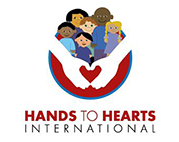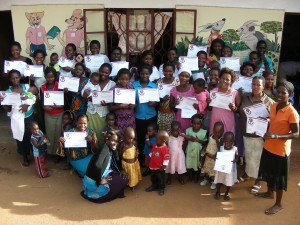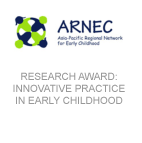For a long time, those of us working the field of early childhood development (ECD) have been talking about its importance—particularly in the birth to age three range. And for a long time, it’s seemed as though we were the only people talking about it. Finally, though there is enough evidence that others are starting to not only talk, but to take action – fund projects, research, etc. Finally!
The Lancet Journal, one of the world’s most respected medical journals, just released another two papers on early childhood development. What they found resonates so deeply with HHI’s mission and vision it’s incredible.
UNICEF released this video about the debate regarding early childhood development. A few key things stand out:
1) The return on investment in early childhood development is huge! Outcomes later in life are directly linked to experiences in a child’s first few years so reaching children before they are put on the wrong trajectory is crucial.
2) We can make a difference by offering comprehensive programs (early learning, nutrition, health) with simple messages rather than data and ideas that most of the world’s caregivers’ don’t have the time, resources or knowledge to apply. Amazing validation for HHI’s work! This is exactly what we do! HHI is hands-on, interactive and assumes no resources or even literacy.
3) There needs to be a dramatic shift in thinking—No more service silos. There needs to be cross-sectoral integrated services that work together on the issues of poverty reduction, health, early learning and nutrition. Narrow, vertical programs do not work!
4) The papers also note the importance of the maternal support that this type of service provides, especially related to maternal depression. One of the reported outcomes from mother’s who receive HHI training is that they are more confident in their parenting skills. Confident mommies are healthier mommies! They also report feeling more connected and supported in their community after their HHI group trainings – another factor that helps to lift marginalization and thus depression.
Coaching parents and providing them with support is crucial to supporting the developing child. “This is extremely important not only for a child’s development but also for a child’s survival,” said Dr. Nurper Ulkuer, chief, early childhood development unit, UNICEF.
“Radical change is the only way we’re going to tackle this problem.” Dr. Richard Horton, chief editor, The Lancet. Governments and international agencies need to bridge services and work together in order to create the necessary change to truly change the world.What can you do? Keep talking about this issue! Continue the conversation on the importance of ECD and how it is the solution to so many problems.
“Every child has the right to develop to her or his fullest potential and to contribute fully to society. Our responsibility to pursue this goal is just as clear.”—Anthony Lake, UNICEF
We agree, wholeheartedly!










